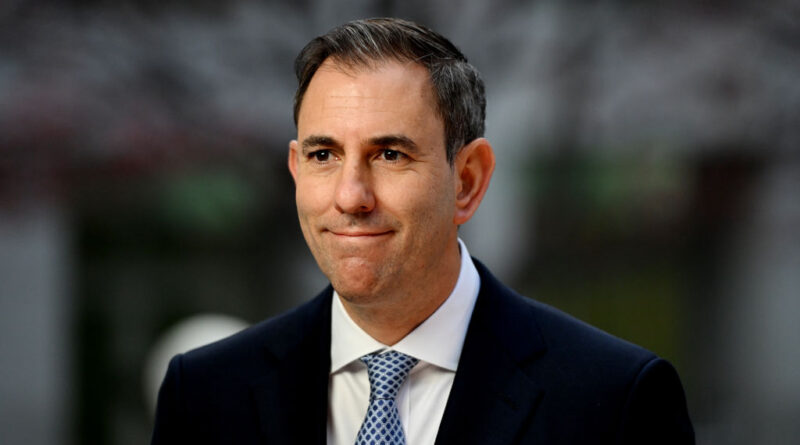Treasurer Applauds Decrease in Inflation Despite Opposition Backlash
The Australian Bureau of Statistics reported on Oct. 30 that inflation has dropped to 2.8 percent, marking the lowest level in nearly four years.
Treasurer Jim Chalmers welcomed the latest inflation data released by the Australian Bureau of Statistics on Oct. 30, showing a decrease to 2.8 percent, the lowest level in almost four years.
Chalmers stated, “We are making welcome and encouraging progress in the fight against inflation, but we know that Australians are still doing it tough.”
He emphasized that the government is taking multiple approaches to combat inflation and highlighted the significant decline in underlying inflation, which is now at its lowest in nearly three years.
“Trimmed mean inflation was 3.5 percent over the year to the September quarter, down from a revised 4.0 percent in the June quarter,” he added.
He noted that inflation was at 6.1 percent during the last election and has now dropped to 2.8 percent.
Chalmers attributed part of the improvement to government policies, including energy rebates, but acknowledged that these measures alone do not fully explain the moderation in the latest figures.
“We are confident, but not complacent, about the substantial progress that we are making as a country,” he said, pointing out that monthly inflation figures for September also reflect a positive trend, decreasing to 2.1 percent from 2.7 percent in August.
Latest Numbers Signal Economic Failure: Shadow Treasurer
However, the government’s optimistic outlook has been met with criticism from Shadow Treasurer Angus Taylor.
“After two and a half years of this government, Australians are poorer under Labor,” he said.
Taylor pointed out that core inflation rose by 0.8 percent in the September quarter, bringing the annual increase to 3.5 percent, well above the Reserve Bank of Australia’s target range.
Taylor argued that rising prices, taxes, and mortgage repayments are affecting Australians due to what he described as “homegrown inflation.”
He highlighted the discrepancy between homegrown and imported inflation, noting that domestic inflation is nearly seven times higher.
He also compared Australia’s economic challenges with other countries where interest rates have decreased, suggesting that essential goods have become more expensive under Labor.
With overall price increases reaching 10 percent and even higher for necessities like food, education, and housing, Taylor accused the government of economic mismanagement.
Chalmers Points to Global Inflation Fluctuations
When asked about predictions of inflation potentially increasing again when subsidies subside, Chalmers said, “What we’ve seen in other countries is that inflation doesn’t always decrease in a linear fashion. In fact, in the U.S., their core inflation has actually increased, not decreased, in the most recent data.”
He added that while there may be fluctuations on the way down, “the overall trend is very positive, especially the underlying number.”
Meanwhile, Taylor stated that Australia is lagging behind in addressing this persistent inflation issue.
“Our core inflation is higher than the Euro area, Sweden, Norway, Japan, New Zealand, and Canada. And we see across the globe, interest rates are dropping, but not in Australia. Interest rates are decreasing in the United States, the UK, New Zealand, Canada, and Europe, but not in Australia.”





